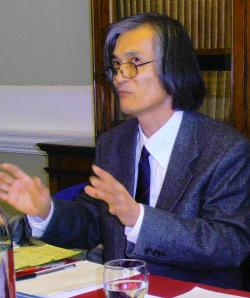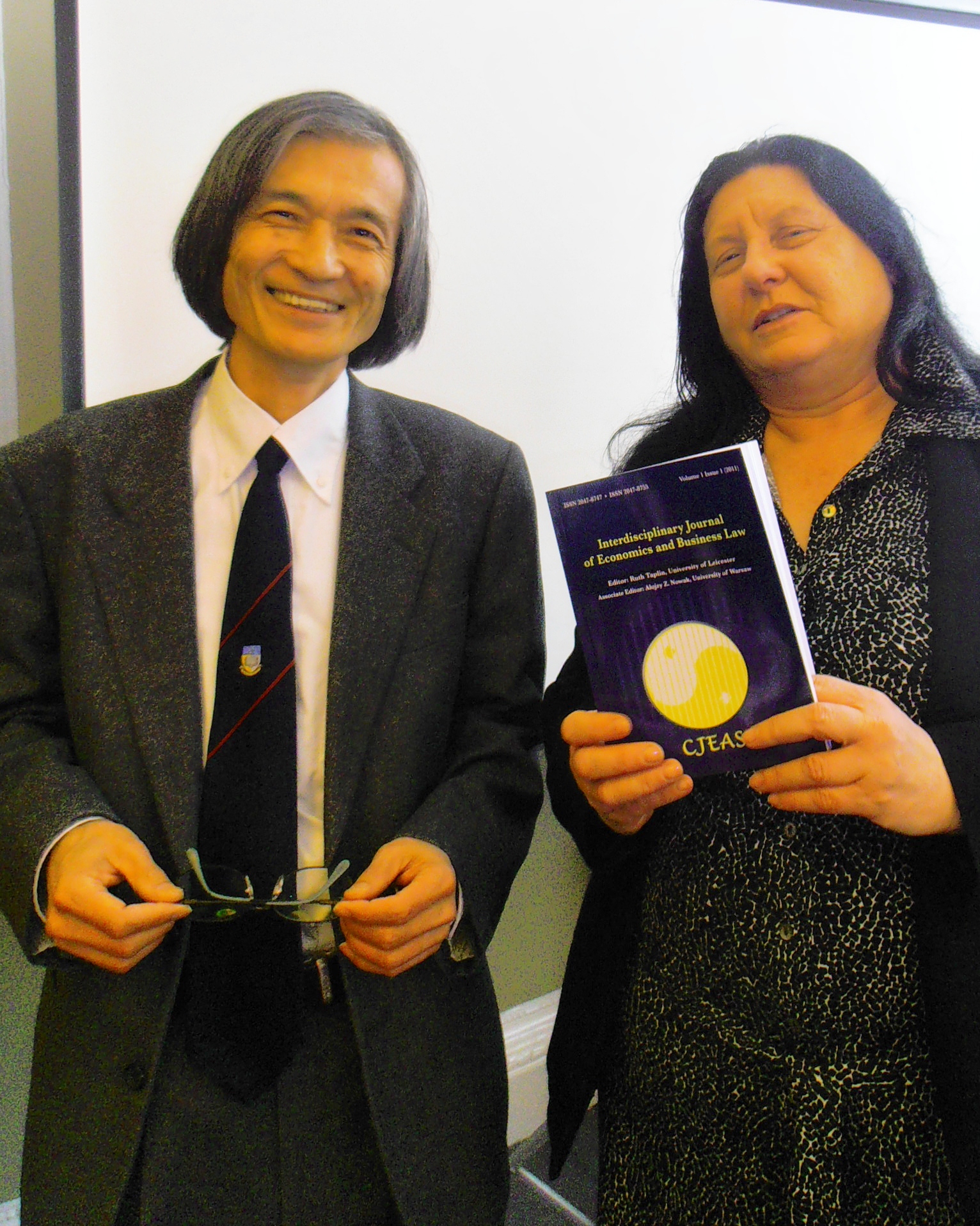Emerging Trends in Japan-Africa Relations

Talk by Professor Jun Morikawa (Rakuno Gakuen University)
Japan Discussion Group
Chatham House, London (27 March 2012)
Review by Jason James
Professor Jun Morikawa, author of Japan and Africa: Big Business and Diplomacy (1997), spoke to the Japan Discussion Group at Chatham House on Japan-Africa relations. His basic thesis appeared to be that Japan’s Ministry of Foreign Affairs (MoFA) is disingenuous in presenting Japan’s policy towards Africa as altruistic, and is air-brushing the mixed history of Japan-Africa relations, partly by claiming that it doesn’t go back very far.
History of Japan-Africa relationship before the 1960s
Africa has traditionally not been all that important to Japan, with the exception of South Africa. The rest of the continent has typically only accounted for 1-2% of Japan’s trade.
Japan has traditionally seen Africa as part of the European sphere of influence, and has tended not to want to rock the boat, but merely to focus on trade within the existing colonial system. Japan was granted ‘honorary white’ status in South Africa in the 1930s, so had no problems with the existing system.
Japan’s trade relations with Africa started developing significantly during World War I, with Cairo and Cape Town being the main trading partners.
In the interwar period, there was substantial trade between Japan (particularly the Osaka area) and Uganda and Egypt, both of which supplied cotton for the booming Japanese textile industry, while Japan supplied light manufactured goods.
Africa became a fast-growing market for Japan in the 1930s, causing some friction with traditional trading partners whose exports were being displaced, such as the UK and Australia. (Japan switched its wool supply from Australia to South Africa in 1937.)
Following WWII, South African forces fought on the US side in the Korean War (using Japan as a forward base), and with Japan becoming an ally of the US as well after its independence in 1952, Japan and South Africa therefore indirectly became allies.
Colonialist and ‘scientific racist’ ideas, which were common among white people during the colonial era, transferred to Japan’s ruling elite and became an undercurrent in Japan’s view of Africa. Indeed, these racist perceptions still affect policy and are quite widely held among the Japanese public.
The relationship becomes ‘official’ in the 1960s
Industrialisation in the 1960s-70s required increasing quantities of minerals and other resources, and both MoFA and MITI [Ministry of International Trade and Industry] were interested in Africa for this reason. Once Japan started focussing on high tech industries from the 1970s onwards, rare metals from South Africa also became an important import, along with cobalt from the former Zaire (now the Democratic Republic of the Congo).
MoFA launched the Africa Society in 1958, and the Diet Library started collecting books on Africa at around the same time. MoFA’s Africa Section was established in 1961, and the Ministry tends to present Japan’s engagement with Africa as having started in this period. As well as ignoring the relations between Japan and Africa prior to that date, MoFA tends to whitewash the history of the relationship after 1961 as well.
Japan’s resources have been limited, so it has focussed on South Africa, Egypt and parts of Uganda. It has found the going difficult in Francophone parts of Africa, except for the former Belgian Congo [present day Democratic Republic of the Congo], and remains highly selective in its engagement with Africa to this day.
Following the oil shock in the early 1970s, Japan became concerned that mineral resources might be the next shock. Keidanren sent a large mission to Africa in about 1970 and tried to develop a big copper project there in the 1970s. Japan tried to limit western domination of Africa [presumably in the fear that this might put it a disadvantage in terms of mineral supplies].
The African independence movement started in North Africa, and then spread southward, being slow to reach the southern end of Africa. Japan set up diplomatic relations with the newly established independent African nations, but was conflicted between its desire to appear a friend of these new nations, and its continued need to trade with South Africa. South Africa was also a reliable anti-communist bulwark during the Cold War, and this was another reason why Japan tended to support the regime there.
MoFA was initially cool towards African anti-colonialist movements, and described the African National Congress as a ‘terrorist organisation’ in 1982.
The end of the regime in South Africa, along with the end of the Cold War, therefore left Japan’s Africa policy in some disarray.
The Asia-Pacific region overtook the Atlantic region in 1985 in economic terms, and since then Japan’s focus has shifted increasingly towards Asia.
Japan positions itself as an altruist
In 1993 Japan launched the Tokyo International Conference for African Development (TICAD), trying to position itself as an altruistic donor of aid to Africa. But the reality is more complicated. This conference was launched in response to the need for Japan to improve its image in Africa, since it had been closely associated with colonialist and racist regimes in the past.
The 1993 TICAD was perhaps the height of Japan’s diplomatic efforts towards Africa. But by the second TICAD in 1998, Africa was already starting to be disappointed that Japan was not matching its words with actions.
Japan’s ODA peaked in 1997, and the total amount has halved since then. So although the share going to Africa has risen (from around 10-15% in the late 1990s), the absolute amount going to Africa has still declined. And Japanese foreign aid still tends to have strings attached so that the money is spent with Japanese companies or other Japanese organisations.
Another factor affecting Japan’s diplomacy towards Africa has been that China has become increasingly involved with Africa as China, like Japan before it, has become increasingly dependent on Africa’s natural resources. China became a net oil importer in 1993, and founded the Forum for China-Africa Cooperation in 2003, holding a major summit on Africa in 2006. China’s trade with Africa is now six times as large as Japan’s, and the gap is likely to widen further.
So Japan is trying to avoid competing directly with China in African diplomacy, but is instead pitching itself as having a different angle – Japan’s main interests being ODA, human rights, anti-corruption initiatives etc. The intention is to appeal less to governments (as China is doing) and more to civil society.
The Japan International Cooperation Agency (JICA) was also reorganised in 2006 in an effort to counter increasing Chinese influence in the Third World, setting up a Bureau of International Cooperation to engage in large-scale yen loans, technical cooperation etc. Professor Morikawa noted that JICA’s priorities are set by MoFA, and that both JICA and MoFA are heavily influenced by their exchange of ideas with Washington (and to some extent London).
Professor Morikawa saw China and Japan as ‘elephants’ competing for influence in Africa, and feared that the losers in this game would be African populations.
Another factor behind Japan’s courting of Africa in the last couple of decades has been that Africa’s UN votes were important in Japan’s effort to become a permanent member of the United Nations Security Council. But the impetus has faded in recent years as the 60th anniversary of the UN in 2005 was seen as the most promising date for a change in the UN’s structure, and Japan did not achieve its objective.
One of the fruits of Japanese diplomacy is that the Japanese Self-Defense Forces now have their first African base, in Djibouti.
It was noted in the Q&A session that Japanese companies have become more risk-averse and less willing to invest in Africa since the Great East Japan Earthquake on 11 March 2011. This may further undermine Japan’s position in the region.
General criticisms of MoFA
Professor Morikawa was clearly no great fan of MoFA. He criticised Japan’s foreign policy for lacking democratic control [presumably he was referring to a lack of transparency in policy-making]. He also noted that Japan never produces objective reviews of past policy, so it never seems to learn from its mistakes. He felt that the gap between Japanese words and actions in Africa is again undermining Japan’s credibility in the region.
Although Japan presents its policy as altruistic and humanitarian, it is still driven very much by realpolitik, in Professor Morikawa’s view.


